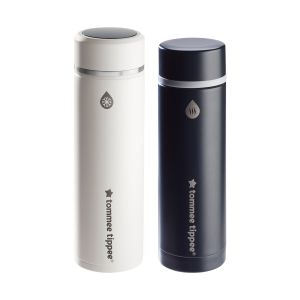
This is a demo store. No orders will be fulfilled.
Subscription orders can be cancelled at anytime. Free delivery on all subsequent subscription orders. Find out more about subscriptions.
They’re easy and fuss free
Your products are automatically sent to you
You save up to 10% when you sign up for a subscription
You can cancel at any time
You���ve got your bag packed, your birth plan in place and you���re as prepared as you can be for the wonderful and life-changing experience of being a mum, but have you thought about what comes after? About the first time you���ll feed your precious baby?
We take a look at what to expect in the very first few hours of breastfeeding your newborn.
Even if you already have little ones, the first few hours with a newborn are always precious. From the moment your baby is placed on your chest for some skin to skin contact your body is flooded with love hormones.
It���s recommended that you put your newborn to your breast as soon as possible after delivery and try and feed your baby within the first hour to establish a good start to your breastfeeding experience. Of course there will be times when this isn���t possible, if mum or baby needs some extra care for example. It���s just good to know to feed baby as soon as it possible following their arrival.
Your baby will be most active in the first couple of hours after they are born, which is why it���s a good time to try to get them to latch on for the first time. Spending time skin to skin with your newborn stimulates the ���love��� hormone, oxytocin, which can have a calming effect on both mum and baby and also produces prolactin, the hormone which triggers your breast milk supply.
At this stage you won���t produce a lot of milk, but that���s okay because your baby only has a tiny tummy. Your early breast milk is called colostrum and is packed full of nutrients and antibodies that help protect your baby from illness and infection, which is why those first feeds are so important.
Be persistent and keep trying to get baby to latch on, but don���t put pressure on yourself and make sure to ask for help if you need it.
After their first feed, babies tend to be quite sleepy. This is a perfect time for you take a well-earned rest too and for your partner to have some bonding time with your baby.
Your breasts won���t produce milk unless it���s asked for, so if baby has to spend time away from you in special care for example, you may have to hand express to stimulate milk flow ready for when your baby can be back in your arms.
It can take up to three days for your breast milk to come through which is perfectly normal. Every time your baby goes to the breast they are stimulating the production of milk which will make its appearance around day three. Make sure you ask for help and support in getting the latch right as this makes all the difference.
Your milk supply can sometimes happen suddenly, or sometimes more gradually. Your breasts may feel fuller, and you might hear or see your baby swallowing more milk.
If your breasts become so engorged when your milk comes that it���s uncomfortable for you and hard for baby to latch on, try a little massage or hand expressing to get your milk flowing. Our Made for Me silicone breast pump can help relieve the pressure of engorged breasts and allows you to collect milk from one breast while you feed from the other.
Your baby will show that they���re ready for a feed by...
In the first 24 hours after birth you may find that your baby is very sleepy, so you may have to nudge them gently awake to try and establish a feed if you see any of these signs. Sometimes using some of your hard-earned harvested colostrum can be a way of peaking their interest.
Baby will show that they are receptive to breastfeeding by:
Getting the latch right is one of hardest things to master, and you may have to experiment with different positions and angles to find what works for you and your baby.
Your nipple should go to back of your baby's mouth, so get as much of the areola and breast into their mouth as possible. Don't worry that you���ll smother them. If your baby can���t breathe, they can���t suck either and they would detach themselves.
Mums sometimes worry that their baby isn���t getting enough milk from breastfeeding, as you can���t measure it. Remember that babies have very small tummies, so are likely to feed little and often at first. The best way to judge if your baby is getting enough milk is by their wet and dirty nappies.
Try not to worry if your baby doesn���t spend long feeding. Some babies can fill up in minutes, while others take much longer. As long as your baby is latched on properly, they should get all the goodness they need.
In the first few days, your baby may actually lose weight. This is natural and doesn���t mean you���re not providing enough milk. Your baby should start to put on weight again by the time they���re five days old. But if you���re at all concerned about your baby���s feeding, seek medical advice.